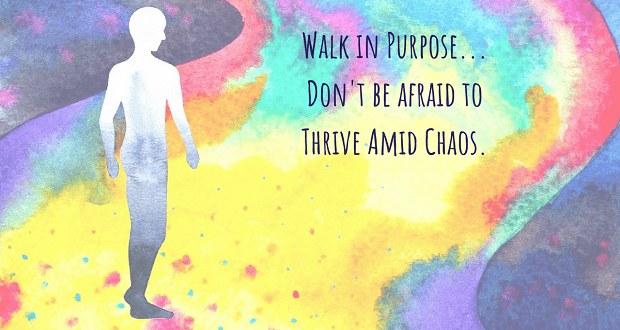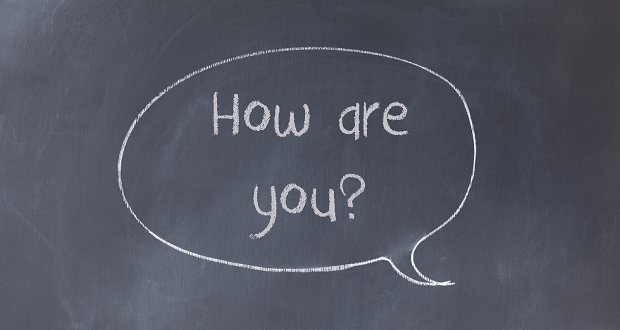
In the past few weeks, we’ve used this series to share strategies for reflecting on who you are, what you need, and how you can feel connected to your heart and to your strength, particularly in chaotic times. A thread throughout the series has been the need to do this work with intentionality. Caring for ourselves is not just what we do to survive in stressful times—it is how we continue to lean into who we are and our purpose in the world. Knowing that you are walking in your purpose in the world is perhaps the very thing that holds you up when the world seems to be falling around you, and our self-care practices should be intentional in supporting this journey.
What does intentionality look like? As much as I like a good Netflix binge on the weekends, the hard truth about self-care is that it doesn’t mean just doing whatever we want that feels comforting. Sometimes, comfort food and a good tv show can be good, but if we dwell in that place of indulging or self-medicating without examining why we need to feel comforted in the first place, we can get stuck in those feelings rather than exploring them and building resilience to move forward.
Intentional self-care that supports us in walking in purpose is actually more about discipline. It is about knowing and respecting your boundaries and the positive choices you’ve made for yourself, even when and especially when they are tested. For example, I know that when I am emotionally tired, the last thing I want to do is work out because my mental exhaustion registers to me as physical exhaustion. However, working out is one of the ways that I’ve found helps me to relieve stress and build confidence. So, it’s exactly the moments when I’m stressed and lacking confidence, when I don’t want to work out because my brain is telling me that I can’t, that I need to have the resilience to know my brain is tricking me and the discipline to do it anyways.
Self-care is about playing the long game. It’s about moving through momentary stress with our hearts centered on our purpose and with our minds focused on our journeys. I’ve heard often over the past year and a half that the world is really distracting right now. But I want to make a clarification. People’s pain is not distracting. People’s lives and efforts to affirm who they are in an exclusive and exploitative society are not distracting. People’s cries for help are not distracting. People’s values and desires as American and global citizens are not distracting. The way we talk about them is. The way we talk past one another, choosing not to empathize or find common ground, is distracting. The way we tear one another down—the way we tear ourselves down—as a strategy for gaining power and influence is distracting.
Self-care is about playing the long game. It’s about moving through momentary stress with our hearts centered on our purpose and with our minds focused on our journeys. Share on XI use the word “distracting” purposefully here. In the midst of real pain and real polarization and real fear, it’s easy to be distracted from actually dealing with these problems head-on, especially when that seems too hard. The lie we tell ourselves in the midst of chaos, and that the world around us often affirms, is that the best we can do is survive. Forget purpose – the best we can do is find what comforts us, what brings us momentary power, what protects our privilege, and hold on for dear life.
But the truth is, thriving in the midst of chaos is possible, for all of us. But it requires walking straight toward that pain, whether it’s yours or someone else’s or the world’s, and not looking away. That doesn’t mean living in our fears or dwelling on the negative, as Susan McCuistion shared in last week’s post. It doesn’t even mean that we have to become “fixers” and always have a plan to “fix” the pain. It just means that in the midst of chaos and polarization and fear, we can thrive if we are intentional about allowing ourselves and our journeys to be shaped by this pain in a way that propels us to live into our strengths, into our values, and into our purpose and become agents of change.
But the truth is, thriving in the midst of chaos is possible, for all of us. But it requires walking straight toward that pain, whether it’s yours or someone else’s or the world’s, and not looking away. Share on XAn agent of change is simply a person who is able to use themselves in service of a larger goal. This larger goal could be your own peace and contentment. It could be a goal around inclusion and equity in the workplace. It could be around a change you want to see in your community. Whatever it is, it’s important to recognize that the practices we have for self-care should be intentional in setting us up to walk in purpose and use ourselves in service of these goals.
What does this look like practically? What does it look like and feel like to “use yourself”?
- Putting into action our best intentions to move towards the change we want
- What we do with our perceptions to make an impact on the world around us
- Intentional conscious actions taken with the hope of bringing change
- Acknowledging the influence of both our conscious and unconscious selves
- Having capacity for reflection, feedback, and deep intrigue with what happens when we try to influence situations and people
- Appreciating the unpredictability of the consequences of our behavior
- Understanding that we are a tool, and can serve many roles as agents of change
I want to end this post with a reminder that we will not be intentional or free from distraction or disciplined or actively creating change all the time. Self-care requires us to be generous and gentle with ourselves when we fall short. If we are able to reflect on and explore the bigger picture of who we are, what we’re walking towards, and why we’re on that journey, the steps along the way don’t always have to be perfect. That’s when our practice of resilience kicks in. That’s when our communities of love and accountability step in. We will talk more about building community in next week’s post, but for now, remember to breathe, take comfort when you need it, but when it comes down to it, don’t be afraid to thrive amid the chaos.
Remember to breathe, take comfort when you need it, but when it comes down to it, don’t be afraid to thrive amid the chaos. Share on X

















